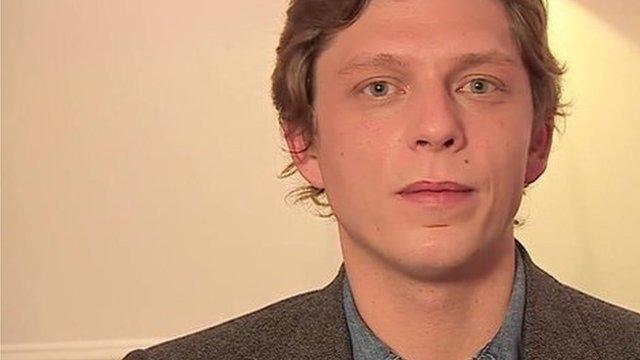Paris attacks: Bataclan reopens, but wounds are not closed
- Published
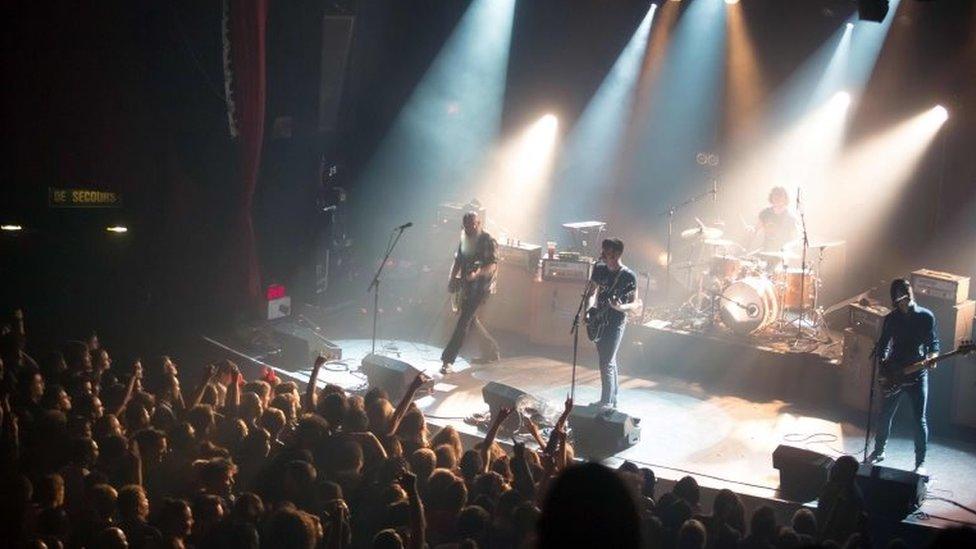
US band Eagles of Death Metal were headlining at the Bataclan when it came under attack
France is commemorating its worst terrorist attack on home soil since World War Two. The attacks by so-called Islamic State, on the night of 13 November last year, left 130 people dead and hundreds wounded.
The Bataclan Theatre has had a strange collection of visitors since it was invaded by Islamist gunmen last year: presidents and prime ministers, grieving families, investigators - even survivors of the attacks there and across Paris have returned to remember and process the events of that night.
This weekend, the venue was filled with music fans once again, come to hear Sting perform an inaugural concert as the Bataclan opened its doors after a year closed to the public.
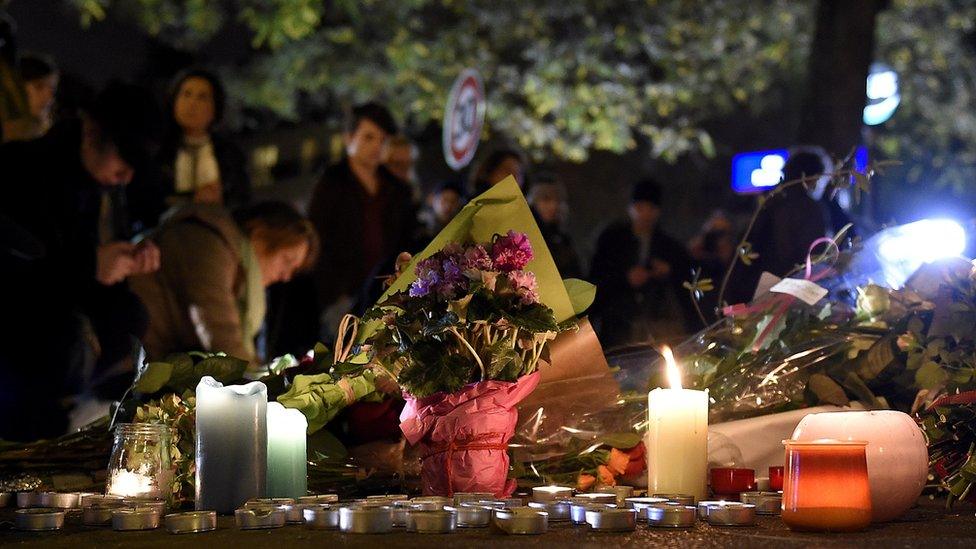
The famous theatre shut its doors for just under one year
Stephane Toutlouyan was one of those taken hostage by the gunmen inside the Bataclan last year.
He's been back since then, he said, but he decided to avoid the Sting concert, as the horrific memories were still too strong.
"When I realised that they were terrorists from IS, I thought it could only end in death," he told the BBC.
"When I remember how the police assault took place, I don't understand how there weren't more people injured.
"I wonder why the attackers turned their Kalashnikovs on the police and not on the hostages, or why they didn't blow themselves up at that moment. I think it's a miracle we survived."
Recovering from that ordeal has been a difficult process, Stephane said, because "the journey back to a normal life was punctured by new attacks: Brussels, Istanbul, attacks in Syria and Iraq, and then Nice.
"Today I think I'm OK but there's always this fear that attacks will happen again."
'I always have regrets'
The French government has made no secret of the fact that more attacks are expected and that there is no such thing as zero risk.
Several thwarted attacks have acted as reminders of that threat over the past year and, in September, Prime Minister Manuel Valls said that French security services were foiling terror plots and dismantling militant networks "every day".
In the year since the Paris attacks, more than 200 foreigners deemed a grave threat to public order or security have been banned from France, according to Interior Minister Bernard Cazeneuve, and 430 travel bans have been issued to French citizens suspected of wanting to join jihadist groups in the Middle East.

Find out more about the Paris attacks:
How the attacks in Paris unfolded on 13 November 2015

But the bans came too late for many people, among them the teenaged daughter of a French woman we'll call Marie. She doesn't want to give her real name to avoid putting her daughter at risk.
Her daughter (who we'll call Isabelle) was converted to Islam by her first boyfriend, and left for Syria with her children before tighter regulation was put in place.
"By the time I started to get worried, it was too late," Marie told me.
"I asked her are you going to leave [for Syria] and she said 'no' and I believed her, though I was still a bit scared.
"Obviously I wanted to go there [after they left]," she said, "to be with them, because I'm afraid something terrible might happen to them, and I'd regret not being next to them; to give them the love of a grandmother, of a mum.
"But I was told it was dangerous, that I could be killed and that I could endanger them too, and that I would be useful here if they wanted to come back one day. I always have regrets."
Now, watching the fresh military operations against IS in Mosul and Raqqa, Marie said she asks herself when an attack will hit the places where her children and grandchildren are.
'Deep issues'
Whatever the progress against IS in the Middle East, says French sociologist Michel Wieviorka, this is not a military war alone.
"The threat is not just a terrorist attack tomorrow," he says, "it's connected to deep issues that will take years to solve.
"There's the crisis in the suburbs, the issue of migrants not really integrating… that will take years and years to change. The government has brought in more police, which is necessary, but it's not enough."
The family of British victim Nick Alexander talk about the Bataclan terror attack one year on
Many people trace the problem of home-grown attacks to the segregation of France's Muslim immigrants in badly-serviced suburbs around its main cities, and their growing economic isolation.
But the profile of those who join jihadist networks is complex, with some young people coming from non-immigrant, Christian families with high levels of income and education.
The political impact of the attacks has been a lurch to the right by the government, and a rise in support for the far-right National Front, says Mr Wieviorka.
And a new political split in France between those who want tougher security and those who feel the best protection is an open society.
"I would not say France has won," Mr Wieviorka says.
"I know that tomorrow or the day after there can be another attack. It doesn't end just like that. It ends because the movement that produces the terrorism ends, and we are not there yet."
- Published7 November 2016
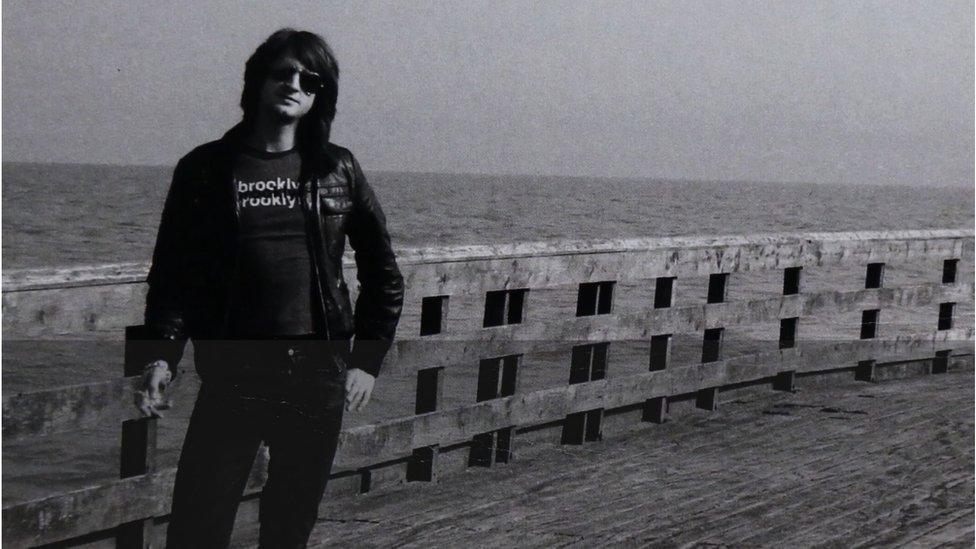
- Published11 November 2016
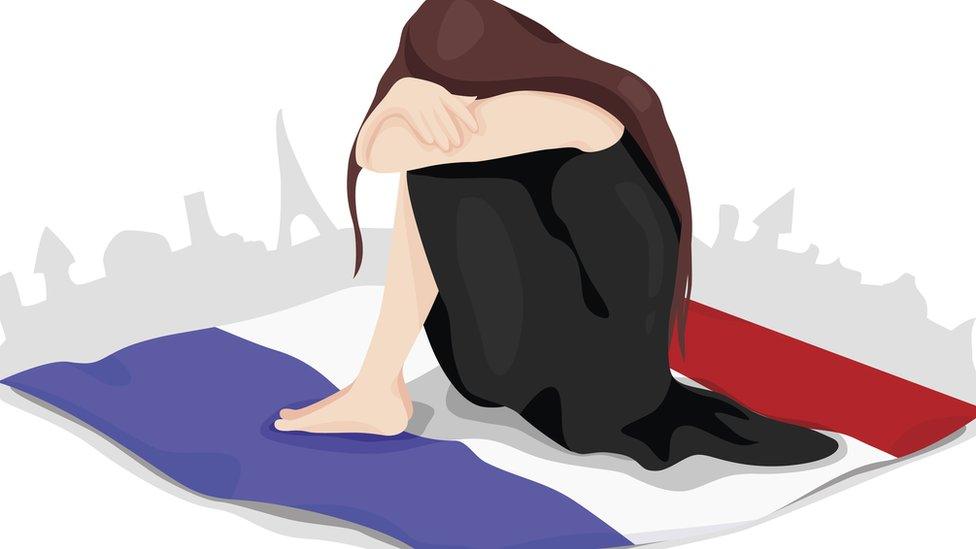
- Published18 November 2015
